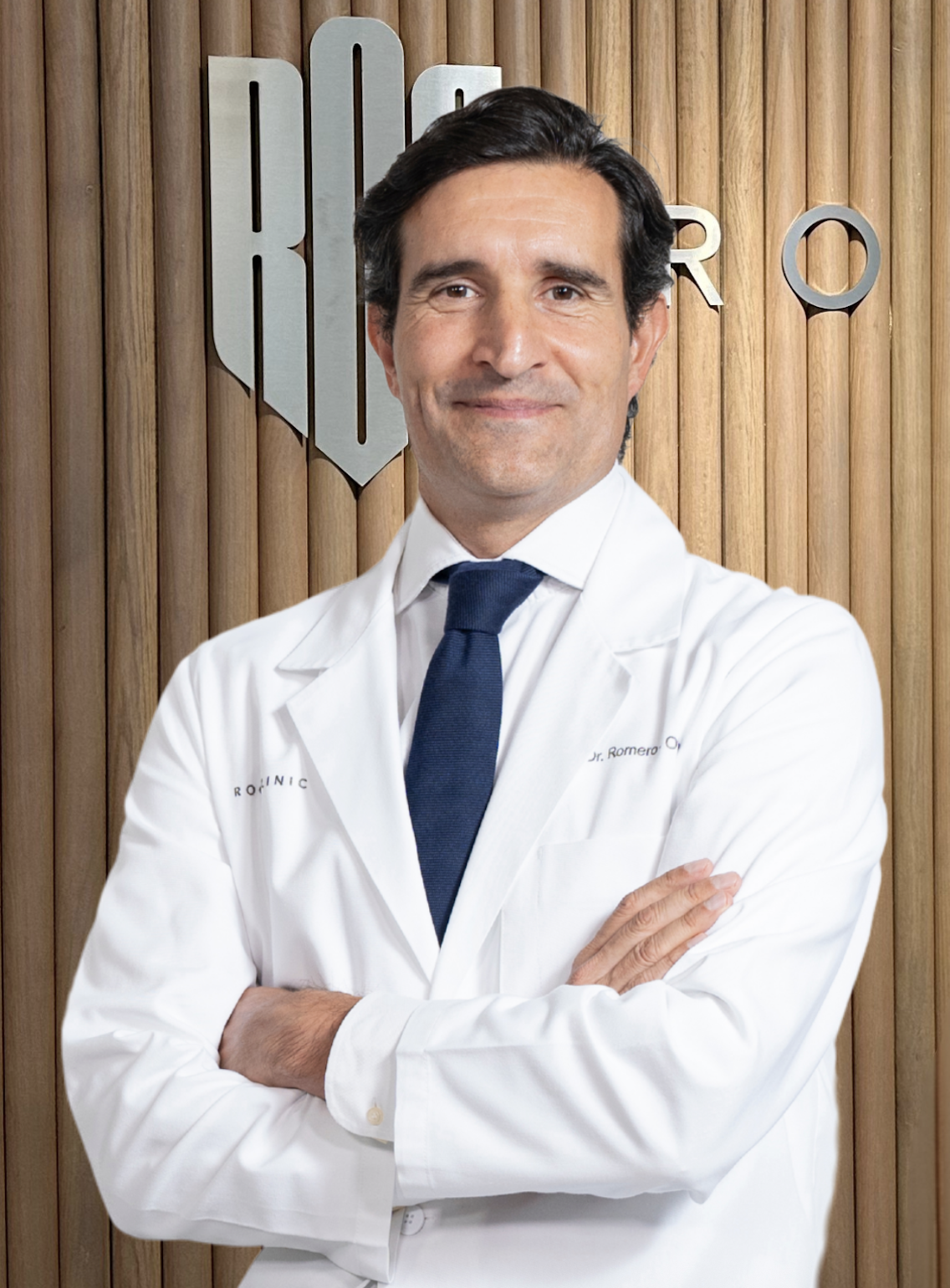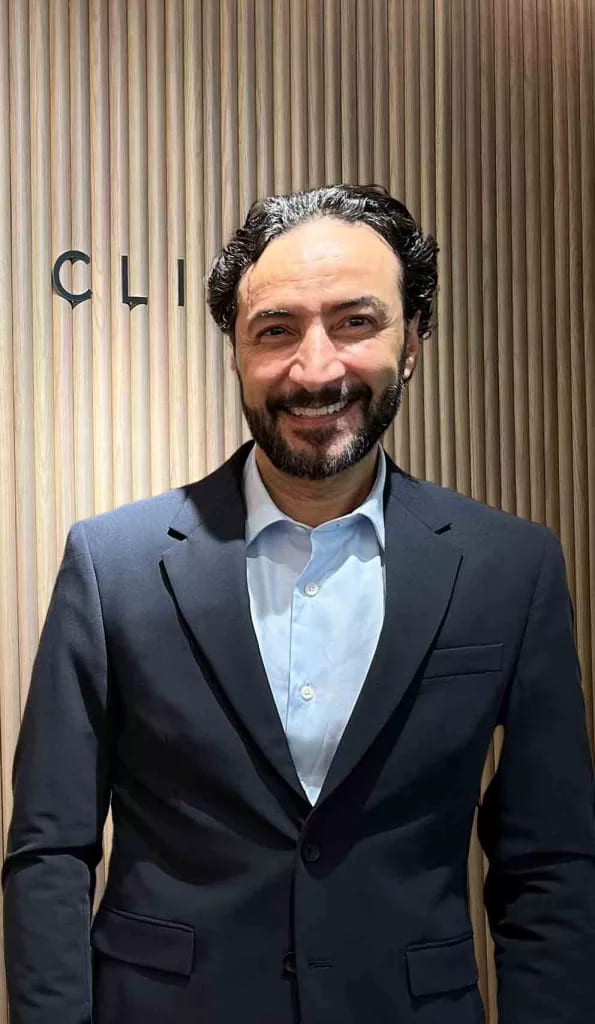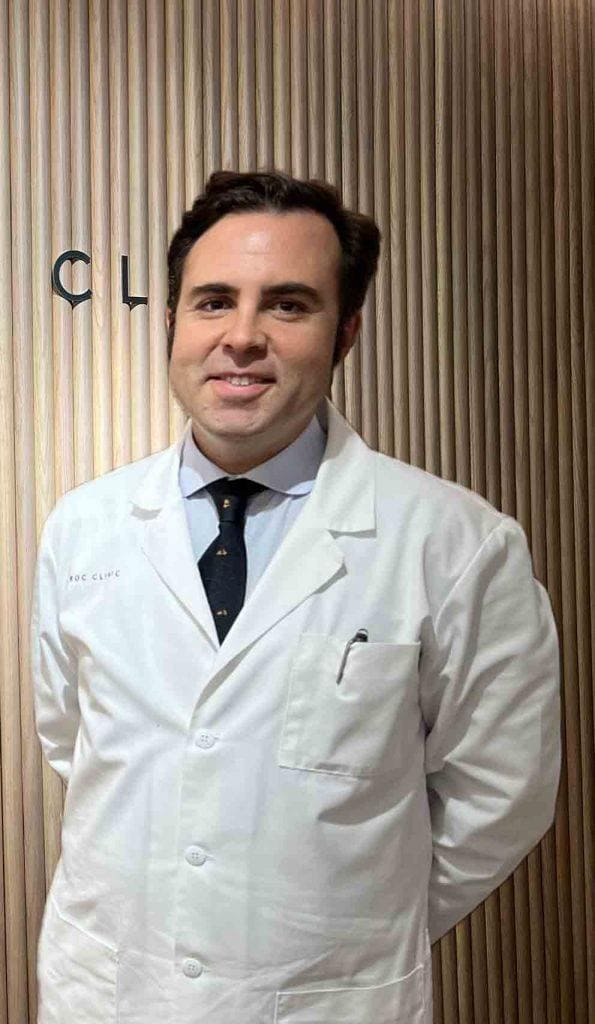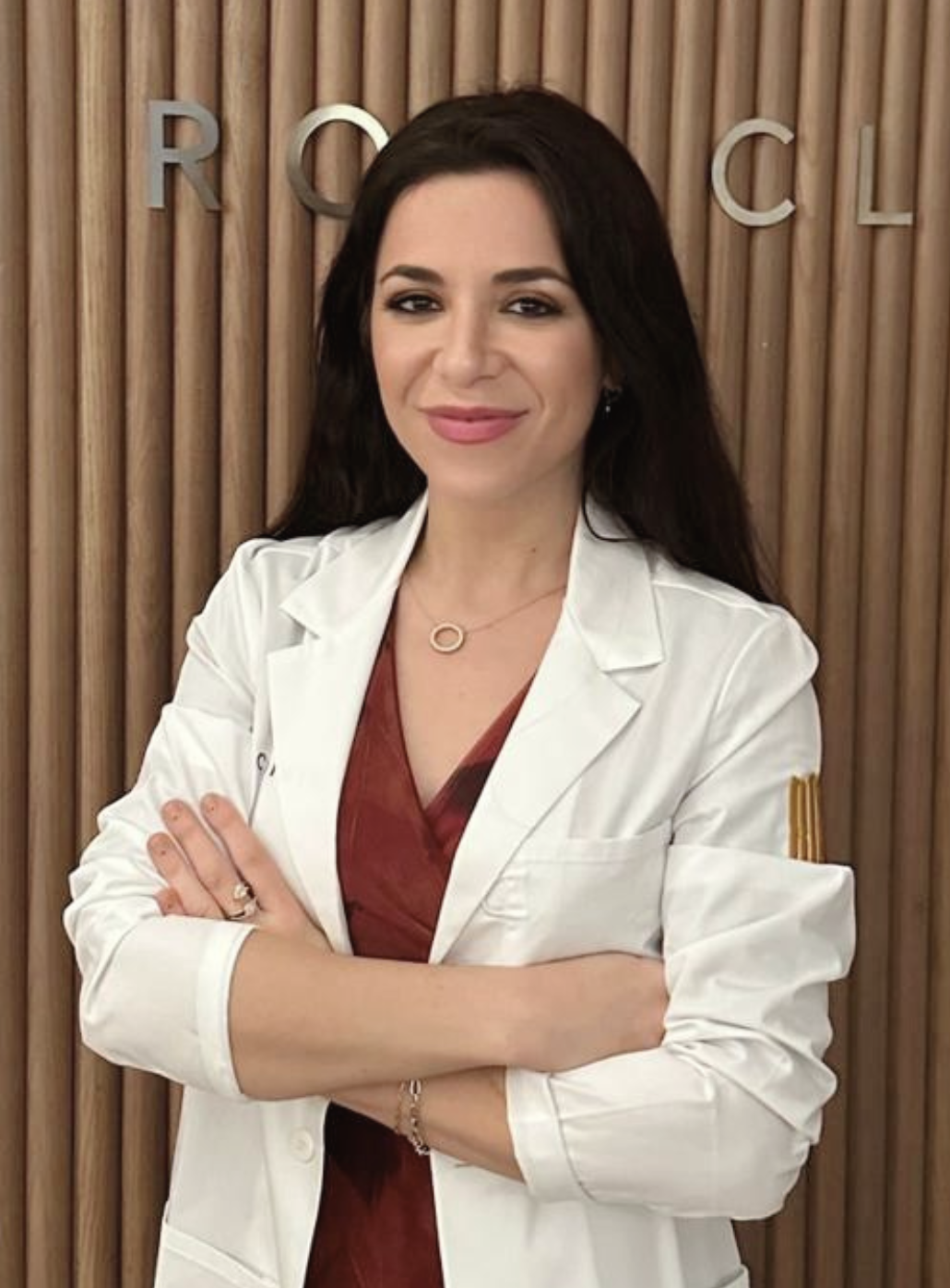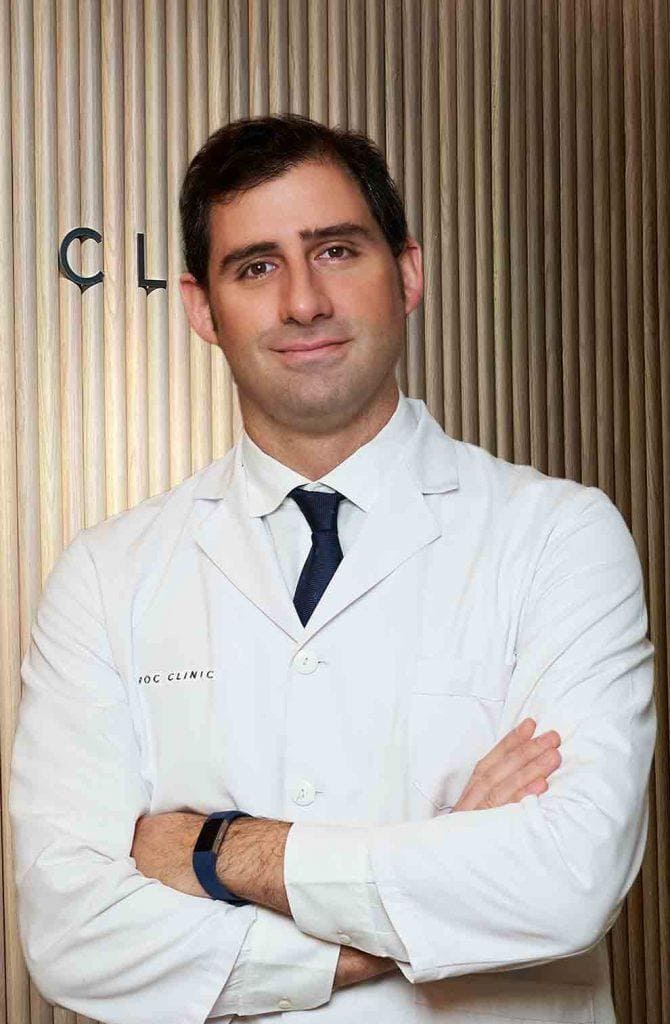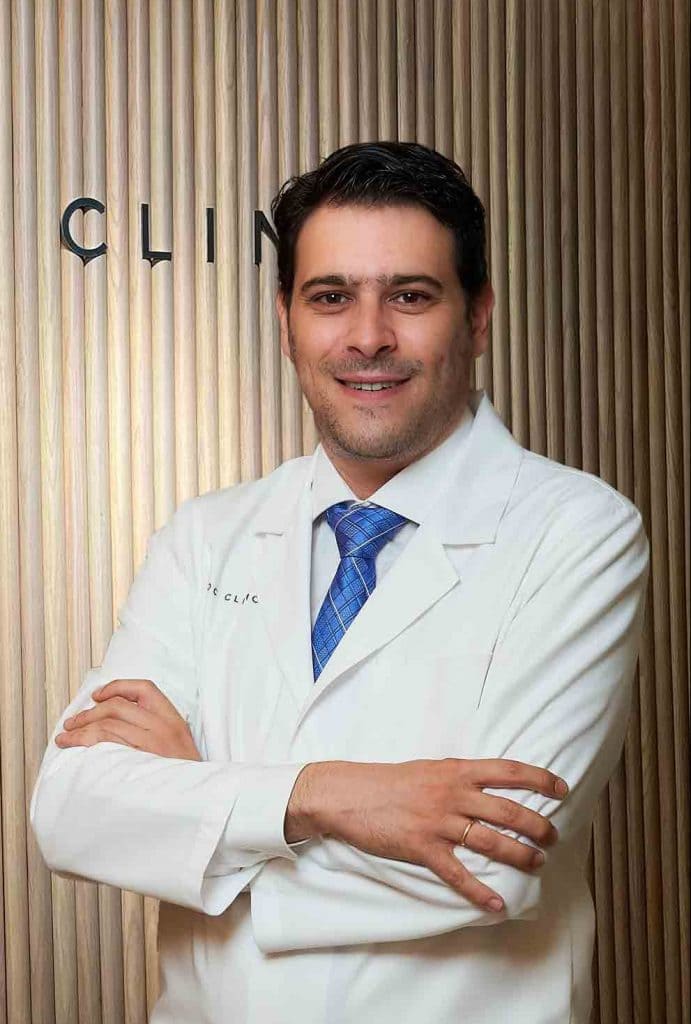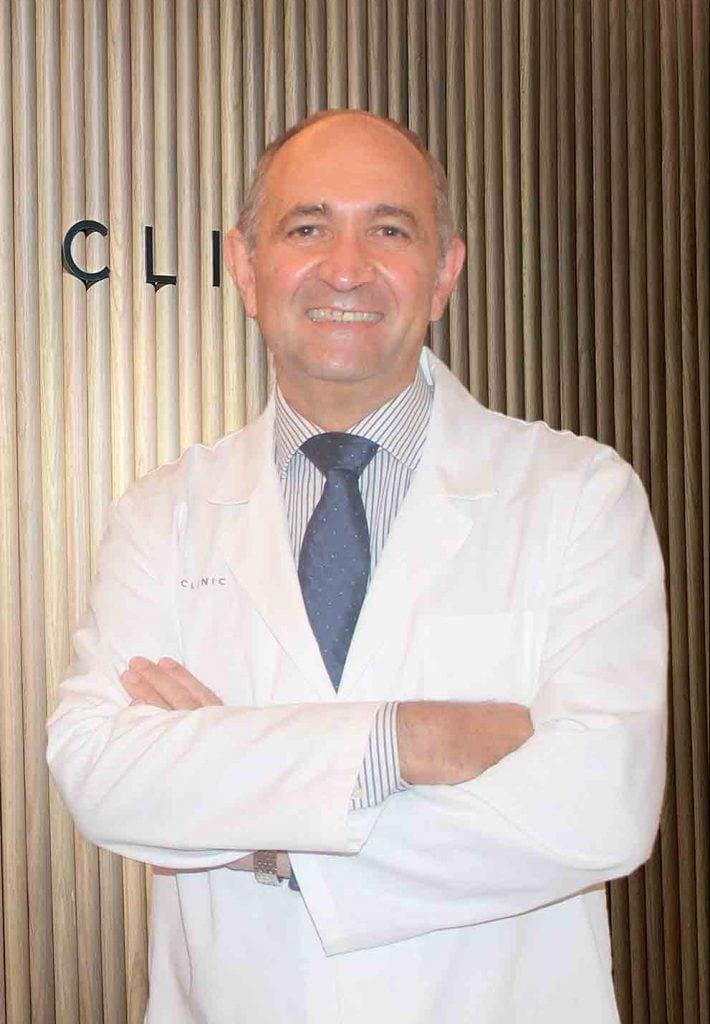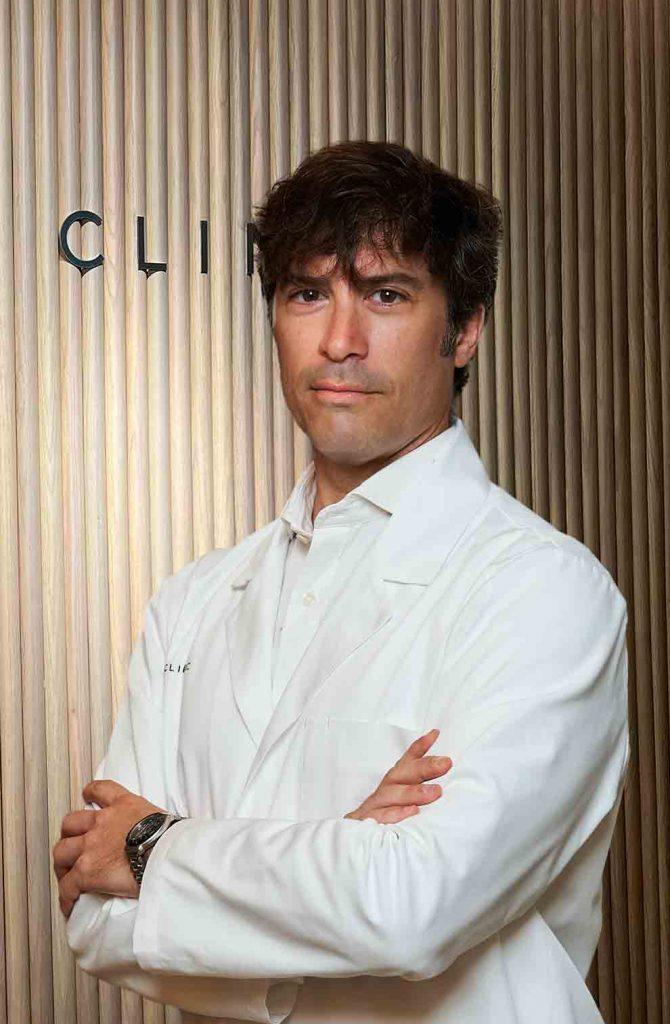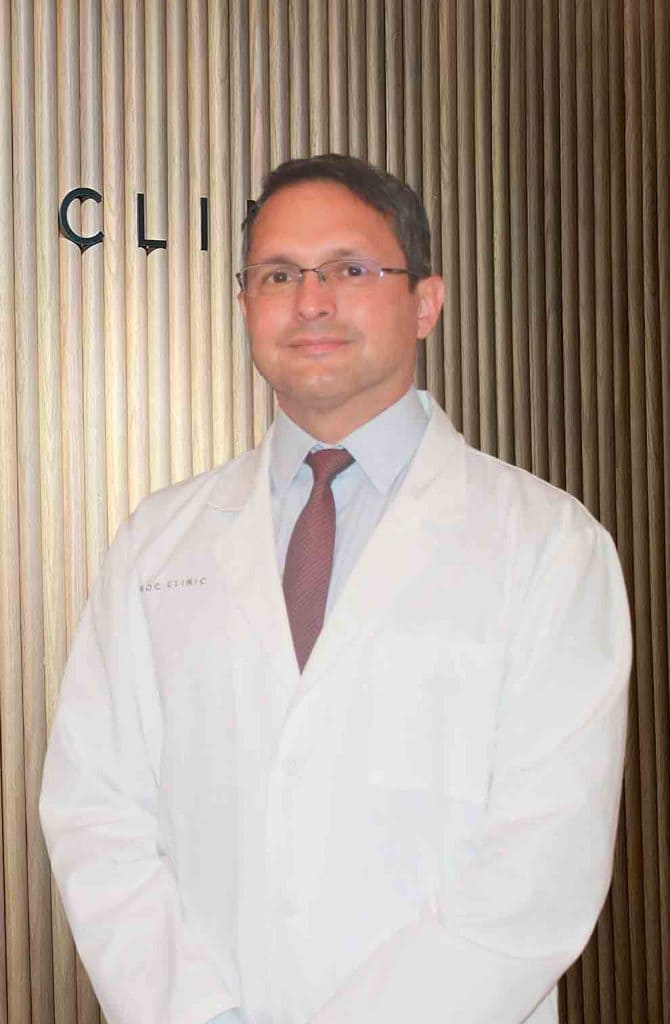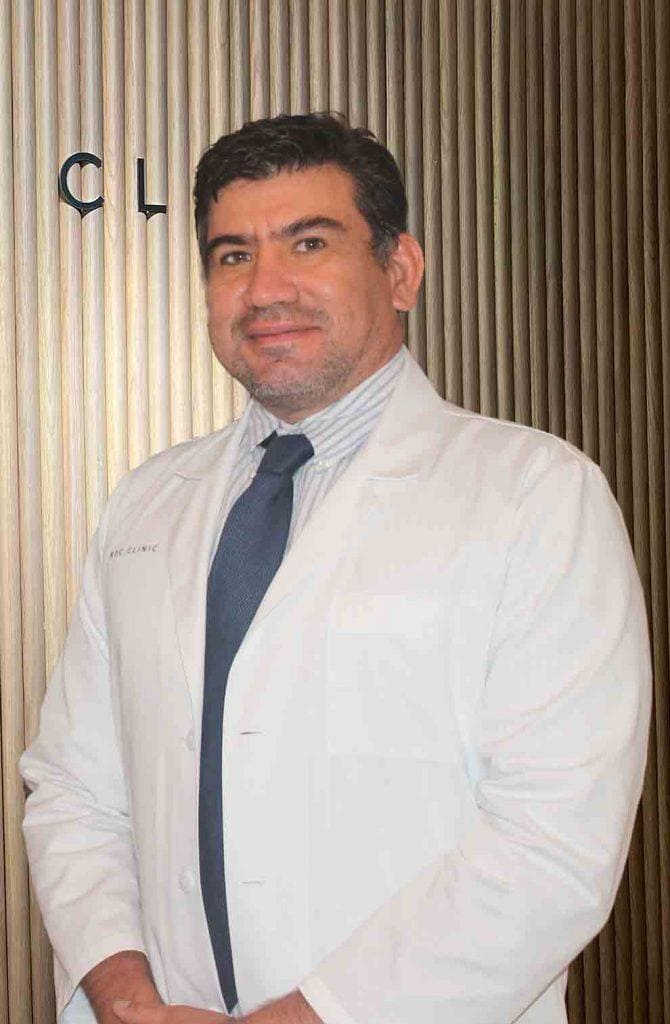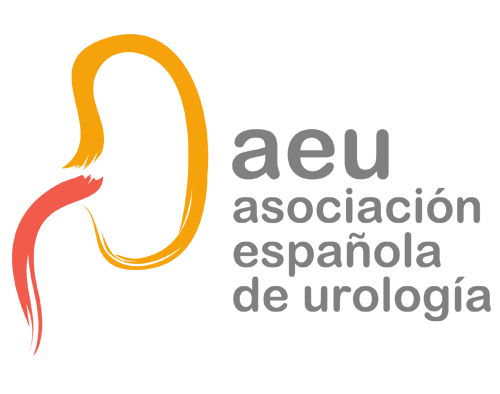Results and Quality of Life Prostate Cancer
Prostate cancer is the most common tumor in men.
In its initial stages, there are no symptoms, but alarm signals are given when it is very advanced.
- Super-specialized urologists
- Personalized treatment
- Minimally invasive approach
- More than 16,000 patients successfully treated
Results and Quality of Life
What we get at Roc Clinic for you:
of the patients were discharged within 24 hours
of the patients were discharged within 48 hours
days in average hospital stay
Experience and confidence
Recognized as one of the best Urology services in the Spanish healthcare system by the Health Reputation Monitor, at ROC Clinic we work to offer excellent medical care with the minimum interruption in our patients' lives. This leads us to find the safest, least complicated medical solution that allows the quickest return to normal life for our patients.
ROC Clinic's medical team treats approximately 300 prostate cancer patients per year. Our team has extensive experience in the diagnosis and treatment of this disease, performing more than 100 radical prostatectomies annually. Most patients who undergo a robotic radical prostatectomy can be discharged within 48 hours.
Also dedicated to prostate cancer research, we provide individualized treatment with great surgical specialization, guaranteeing excellence in the care of each patient.

Top Spain by the Health Reputation Monitor.
prostate cancer patients per year
Multidisciplinary teams
In recent years, the management of many medical conditions, especially cancer, has been carried out by teams made up of different specialties involved in the diagnosis and treatment of the disease. The formation of multidisciplinary committees, in addition to ensuring comprehensive care for each person with prostate cancer, has proven to improve patient survival.
When it comes to cancer, time is of the essence and every decision can make a critical difference in treatment planning. That is why at ROC Clinic, once diagnosed, our patients benefit from a comprehensive prostate cancer consultation service, always under a multidisciplinary approach that brings together the latest in research, technology and the experience of the best professionals. Prior to this consultation, every two weeks, we bring together expert surgeons, medical oncologists, radiation oncologists, radiologists and pathologists focused on the disease to perform, together, a comprehensive evaluation of each case and assess treatment options. Our goal is that this collaborative approach allows our patients to clarify all their doubts in the consultation, to have a solid treatment plan and to feel confident that they have a group of specialists focused on their disease at their disposal.
This model of medical care has led us to be among the best urology services in the Spanish healthcare system. The Urology Services of the University Hospitals HM Sanchinarro and HM Montepríncipe, led by Dr. Javier Romero-Otero, are recognized among the best in Spain by the Health Reputation Monitor.
They ask us in the Consultation
How do I know if I have prostate cancer?
Prostate cancer in its early stages usually has no symptoms, so the only way to detect it early is through medical check-ups. The main tests are the PSA blood test and digital rectal examination. In advanced stages, symptoms such as difficulty urinating, increased urinary frequency, blood in the urine or bone pain may appear. If you are over 50 years of age, or if you have a family history, it is advisable to see a urologist even if you do not have any discomfort.
Is prostate cancer curable?
Prostate cancer is curable, especially when detected in early stages. If the tumor is localized, cure rates exceed 90% with treatments such as surgery, focal therapy or radiotherapy. In advanced cases, although it is not curable, there are very effective therapies that allow it to be controlled for years. Early detection is essential to increase the chances of cure. For this reason, periodic urological check-ups are recommended from the age of 50 (or earlier if there is a family history).
When is the use of robotic surgery recommended?
Robotic surgery is recommended in a variety of situations where its advantages can significantly improve patient outcomes compared to traditional open or laparoscopic surgery. It is considered especially beneficial in complex procedures where high precision and surgical dexterity are required in confined spaces, in patients with comorbidities and/or when urinary or erectile function is sought to be preserved.
How many days does one bleed after a prostate biopsy?
It is normal to bleed after a prostate biopsy for one to two weeks, depending on the type of bleeding. There may be blood in the urine, stool and/or semen.
Team of the Prostate Cancer Unit
Newsof ROC Clinic on Prostate Cancer
Research
High-Intensity Focused Ultrasound (HIFU) for Prostate Cancer – Step-by-Step Technique

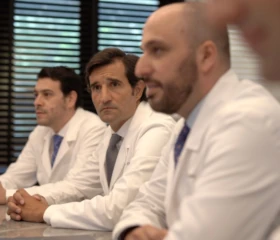
 +34 912 627 104
+34 912 627 104 Contact
Contact